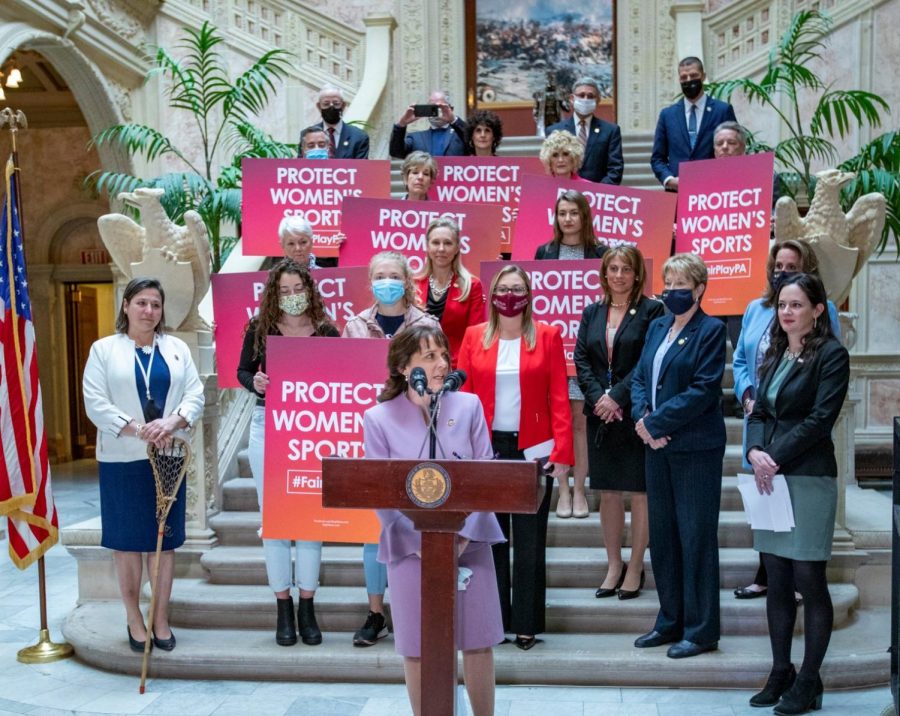Fairness in Women Act
North Carolina has enacted the Fairness in Women’s Act, a bill that will prohibit biological males from playing on teams with biological females. Controversy has risen as a result of the bill, especially against politics and athletes. After a high school volleyball player suffered severe injuries from a transgender woman, other states might ensue this bill.
May 12, 2023
After Payton Mcnabb, a high school volleyball player, suffered severe injuries by playing volleyball against a transgender woman, lawmakers have attempted to put forth laws to prevent such casualties in the future. At least 21 states have passed the Fairness in Women’s sports act since 2020, with Idaho as the blueprint.
April 19, 2023, the North Carolina House passed the Fairness in Women’s Sports Act, a bill that would ban biological males from playing on girls’ sports teams in middle school through college. At least 21 other states have imposed similar limits on transgender athletes at school. The U.S. House also passed a bill Thursday, April 20 to ban federally supported schools and colleges from allowing any biological male athlete from competing on girls’ or women’s sports teams. This bill passed by a 73-39 vote, while three Democrats agreed to the measure. The legislation now moves to the state Senate, as they consider it. The state Senate could vote on its bill, which currently does not impact college athletics.
“I can see how people might think this act is exclusive but I think lawmakers are really just concerned for the safety of female athletes. However, athletes will get injured if they’re playing against transgender people or not. I know many volleyball players who have received injuries from being spiked by a biological female,” junior Savannah Bywaters said.
Currently, North Carolina allows transgender athletes to play sports with the gender they identify with. Those in favor of the bill, believe it will protect women’s safety in competition. Those not in favor of the bill believe the bill discriminates against transgender people. The debate gained support from people such as Riley Ganes, a former swimmer who has publicly opposed allowing biological males to compete against females. Republicans hold a high chance of ensuing a final version of the bill even if Democratic Governor Roy Cooper vetoes it. The White House vowed Monday that President Joe Biden will veto a bill that would prevent biological males from participating in women’s sports if it passes both houses of Congress.
“I felt betrayed and belittled, and like my efforts and sacrifices I had made had been reduced to a photo-op, to validate the identity and feelings of a male But my feelings did not matter. Although they claim they act in the name of inclusion, their policies in fact excluded female athletes — the very athletes whom Title IX was created to protect,” Gaines said.
With all the pressure on North Carolina, several other states have followed in their footsteps. So far, 21 states have put in place restrictions on transgender athletes, with a similar intention to the Fairness in Women’s Act. Soon, other states will join North Carolina.







